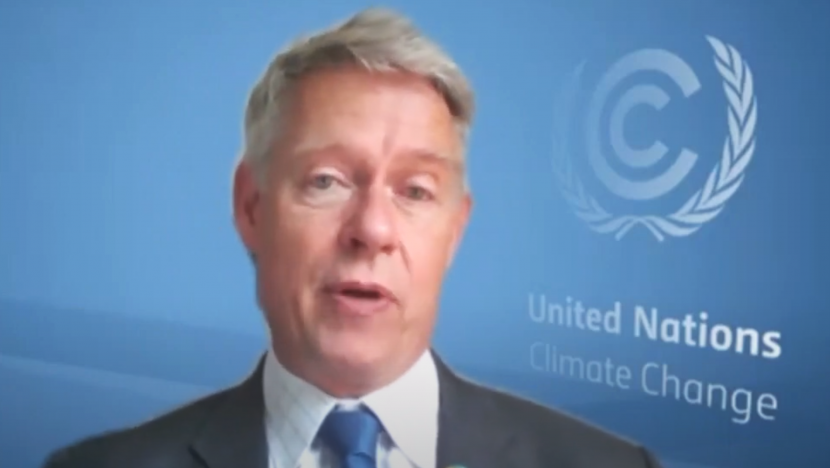Leading industry CEOs, regulators and international organisations have come together to kick off IRU’s 2050 Green Compact with an energetic online debate on key priorities and actions to deliver decarbonisation across the commercial road transport sector globally.
Niclas Svenningsen from the UN Framework Convention on Climate Change set the scene with a challenge on delivering significant progress already by 2030, in order to meet global climate targets by 2050.
Speakers concurred on the need for an ambitious approach, with a strong consensus on what regulators need to get right in order to make this happen: using a well-to-wheel approach instead of a restricted tailpipe-only focus, making the most of all low and zero carbon fuel technologies, and looking at all modes together in infrastructure investments and operator incentives.
The on-line debate followed the recent launch of IRU’s Green Compact, which sets out a roadmap for collective global action to achieve carbon neutrality in commercial road transport services by 2050. Participants from 69 countries, covering a wide range of sectors, joined the event.
With the countdown to COP26, the UN’s next major climate change conference in the UK in November, well underway, Niclas Svenningsen added, “The Green Compact is timely and the right way to go. It sets out a path and defines what needs to be done to achieve climate neutrality by 2050.”
Operator investments
Industry insiders agreed, stressing the importance of workable solutions and financial support from governments.

